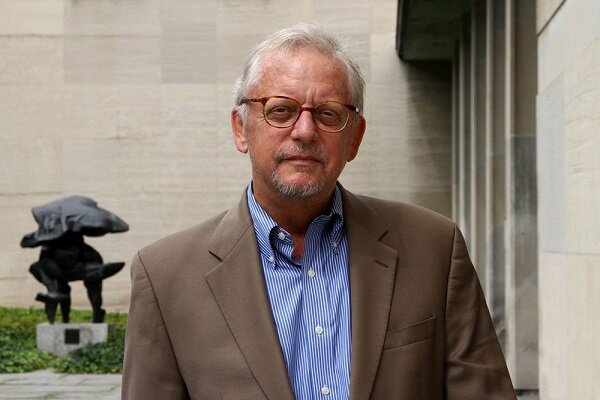Iran has done well to resist Trump’s maximum pressure: research scientist

TEHRAN – An executive director and principal research scientist at the Center for International Studies says that Iran could resist America’s “maximum pressure” successfully while Europe failed to help Tehran.
“Iran has done well to resist Trump and Pompeo’s ill-conceived maximum pressure,” John Tirman tells the Tehran Times.
The Joint Comprehensive Plan of Action (JCPOA) commonly known as the Iran nuclear deal, was inked in Vienna on July 14, 2015, between Iran and the five permanent members of the UN Security Council – China, France, Russia, the UK and U.S. – plus Germany, together with the European Union.
But on May 8, 2018, the former U.S. President Donald Trump unilaterally pulled out of the landmark pact and slapped sweeping sanctions on Iran as part of his “maximum pressure” campaign against Tehran. The Trump administration imposed a total ban on Iran’s oil export, the main source of Iran’s revenues.
The principal research scientist at the Center for International Studies says Trump’s “policies were conventional Republican policies—tax cuts, deregulation, and certain braggadocio in foreign affairs.” In a reciprocal move, Iran started reducing its commitments to the 2015 nuclear deal as it tried to pressure European countries to find ways to confront the U.S. unilateral sanctions. Iran took such a step after waiting for a full year. It started to gradually remove a cap on its nuclear activities at bi-monthly intervals. At the time Iran insisted if Iran’s economy is shielded from sanctions it will reverse its nuclear decision.
“(However,) the Europeans barely helped Iran; they’ve shown themselves to still be vassals of the United States. Iran did it on their own,” Tirman notes.
The rising tension between Iran and the Trump administration pushed some observers to claim that the JCPOA is dead, especially after the Arab-Israeli normalization and their efforts to form a coalition against Iran.
But after Joe Biden’s presidential victory in the November elections and his administration’s promise to reverse Trump’s policies, it is expected the White House rejoin the nuclear deal.
“JCPOA can be revived if Biden starts to unravel sanctions and Iran complies with the restraints on the nuclear program,” according to Tirman.
But the United States has declared that it would return to the deal only after Tehran meets its commitments, according to U.S. secretary of state Antony Blinken.
However, analysts say it is the U.S. that must take the first step and lift sanctions against Iran because it was Washington that quit the deal and imposed sweeping sanctions on Iran with the aim of strangulating its economy.
Iran’s presidential chief of staff Mahmoud Vaezi has said “Iran has not left the JCPOA so that it can return to it.”
In an interview with CNN on Monday, Zarif said EU foreign policy chief Josep Borrell, as the coordinator for the JCPOA Joint Commission, could put his "hat on" and suggest “the actions that are needed to be taken by the United States and the actions that are needed to be taken by Iran" to revitalize the accord.
On his first full day as the top U.S. diplomat, Blinken warned of a long road until verification.
Saudi Arabia and Israel are sparing no effort to hamper the revival of the nuclear deal, claiming that the accord increased Iran’s influence in the region.
“Biden has already taken into account the opposition of other regional players,” Tirman says.
The American international relations expert believes that “steps can be outlined to build confidence that all sides will comply.”
Asked about Trump’s policies in his four years of presidency and the influence of the “deep state” in Trump’s defeat, Tirman emphasizes that “there is no ‘deep state’ in the United States. His policies were conventional Republican policies—tax cuts, deregulation, and certain braggadocio in foreign affairs.”
While “Biden is facing COVID-19 and must focus on the American economy,” Tirman points out that “in foreign affairs, China and Russia remain the biggest challenges.”
Regarding Trump’s future in U.S. political sphere, the American expert concludes that it is difficult to predict but, “my sense is that the entire Trump family is finished politically.”
Leave a Comment